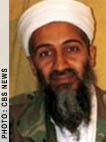NIGHTWATCH
Afghanistan-Taliban: On the death of bin Laden. The Afghan Taliban issued a lengthy statement praising bin Laden, but decoupling his jihad from the current struggle in Afghanistan.
“…The martyr (may God the Exalted have mercy on him) was among the protectors of the Islamic Afghan jihad against the enemy Soviet Union, and he participated with complete loyalty and courage in jihad alongside the Afghans until the Soviet invader forces departed Afghanistan. He offered great sacrifices in jihad in the cause of God, which the history of the ummah of Islam will always take pride in. In addition to this, the martyr shaykh (may God the Exalted have mercy on him) was among the strongest of defenders on the issue of the first qiblah [direction of prayer] of the Muslims: the issue of Al-Aqsa in occupied Islamic Palestine. Likewise, he was the greatest mujahid, and knew not laziness in his struggle against the Crusader-Zionist aggressors all over the Islamic world…”
“… If the occupying Americans and their allies think that the ranks and fighting spirit of the mujahidin in Afghanistan and elsewhere in the occupied lands will weaken with the killing of Shaykh Usama Bin Ladin (may God have mercy on him), this points toward the naïve thinking of the Americans and their lack of understanding of the meanings of jihad and martyrdom. The tree of jihad has been watered, and it is flourishing. It will always do so from the pure blood of the martyrs. With the martyrdom of each martyr, a hundred others will advance to the fields of sacrifice and devotion.”
‘Let America know that the jihadist movement present now in Afghanistan was established from within the Afghan people. It is an expression of the sentiments and hopes of this proud people, and every strike from the occupiers in this country will engender a more powerful response than the strike. The people are in solidarity with the mujahedin.'
‘Indeed, the Islamic Emirate of Afghanistan considers that the martyrdom of Shaykh Usama (may God have mercy on him) at this sensitive stage of jihad will give birth to a new spirit of jihad against the occupiers, and will incite the jihadist waves further and further. Time will prove, to friend and enemy alike, the will of God the Exalted. What we have said is sincere.'
‘The Shura Command of the Islamic Emirate of Afghanistan ”
Comment: The statement represents guidance to the commanders in Afghanistan that bin Laden was important in the fight against the Soviets and his death is an inspiration for the future. The Shura Command, however, does not extol him as a hero of Afghanistan today. Rather it stresses the point that his struggle moved in a different direction. The Afghan fight is home grown so that bin Laden's death is not a blow to the Taliban struggle or morale.
The statement makes clear that the Taliban think that bin Laden had nothing to do with the struggle of the Taliban. The Afghans always despised the Arabs as much as the Arabs looked down on the Afghans. Mullah Omar extended hospitality to bin Laden and his Arabs and they paid him rent and abused Afghan hospitality. Omar lived to regret the arrangement because he lost his country in 2001 to US forces and northern tribal allies because of those Arabs. The Shura members apparently have not let Omar forget his bad judgment and thus they showered bin Laden with faint praise.
The language of the statement also looks like a direct rebuke of western pundits and officials who predicted that bin Laden's death would demoralize the Taliban. The Shura Command disagrees and so does the data on the level of fighting and security incidents in May. More to follow.
NIGHTWATCH KGS Home






